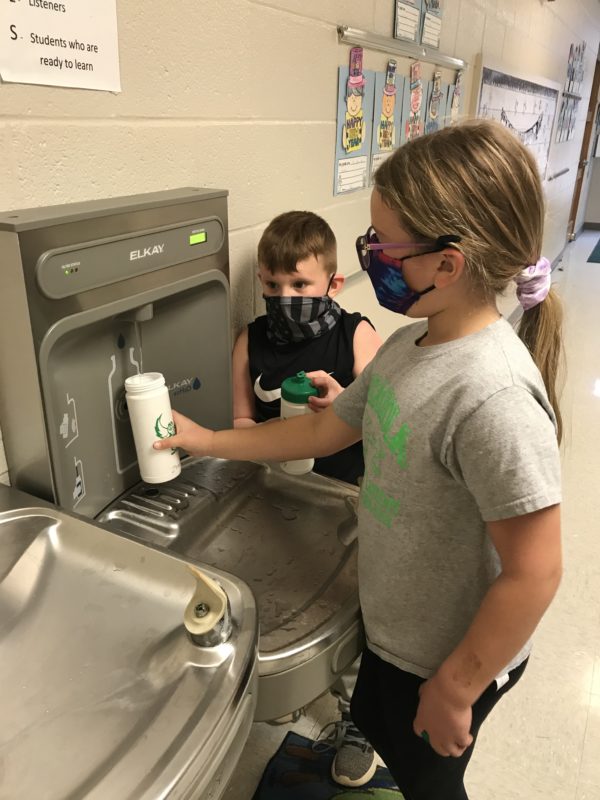RCAP Secures $3.65 Million EPA Grant to Reduce Exposure to Lead in Drinking Water

FOR IMMEDIATE RELEASE
RCAP Secures $3.65 Million EPA Grant to Reduce Exposure to Lead in Drinking Water in Schools and Child Care Facilities
Will expand successful Agua4All water in schools program to reduce lead exposure for more than 16,000 children and adults across nine states
WASHINGTON, D.C. (October 11, 2022) – The Rural Community Assistance Partnership (RCAP) has been awarded $3.65 million from the U.S. Environmental Protection Agency’s Water Infrastructure Improvements for the Nation (WIIN) Act programs to assist with the voluntary reduction of lead in drinking water at schools and child care facilities.
Despite community water systems (CWS) serving over 100,000 elementary and secondary schools and 800,000 child care facilities, the previous lead and copper rule (LCR) did not require specific testing and education programs for these systems unless they were themselves a public water system.
Removing lead is especially important at these facilities because of the negative health impacts lead has on children. The Flint water crisis elevated the national conversation on lead, and the new Lead and Copper Rule Revisions (LCRR) requirements and other testing initiatives will continue to uncover many more lead exceedances across the U.S. With these challenges being uncovered, it is important for us to implement viable and sustainable solutions to improve public health. Improving school and child care water access has the combined benefits of reducing lead exposure and addressing other social determinants of health especially in rural, disadvantaged communities where resources and capacity are limited, and health inequities are prominent.
RCAP and four of its regional partners, Communities Unlimited (CU), Great Lakes Community Action Partnership (GLCAP), RCAP Solutions (RSOL), and Southeast Rural Community Assistance Project (SERCAP), will reduce lead in schools and child care facilities through remediation strategies including installing water bottle filling stations with ANSI/NSF-approved lead removal filters and replacing fixtures in rural communities. RCAP knows how to engage and support communities disproportionately affected by lead, has extensive knowledge of and experience with the LCR/LCRR and does existing work on safe water access in schools through its Agua4All program, which was founded in 2014 by RCAP’s western partner, RCAC.
“RCAP has been building momentum across the country for its Agua4All work since 2014,” said Sarah Buck, RCAP Chief Programs Officer. “Agua4All is based on the belief that all people, especially children, no matter their zip code, socioeconomic status, or race/ethnicity, should have affordable access to safe drinking water whether at home, at school or out in the community. Lead has a huge negative impact on the health and development of children and RCAP is excited to take the Agua4All lead in schools’ mitigation work we have begun with other private and public funding and expand it to schools and childcare facilities in underserved rural communities in at least nine states.”
Since the Agua4All program’s launch, RCAP, across all 6 regions, has installed hundreds of water bottle filling stations and point-of-use (POU) treatment solutions including POU arsenic filters in Arvin, CA, schools and various community buildings and parks. Agua4All program participants have included well over 100 schools in more than 40 districts serving dozens of rural communities in more than 10 states. This work has been supported broadly by both public and philanthropic funds since 2014 including entities such as The California Endowment, the Chris Long Foundation, CoBank and Liquid IV who are dedicated to the health and wellness of children, especially those in underserved areas of the country.
RCAP plans to use the EPA funds to complete lead site assessments and remediation plans at a minimum of 54 schools and child care facilities where RCAP will install at least 150 bottle filling stations and accompanying lead remediation solutions which will include either lead removal filters or fixture replacements. RCAP will prioritize sites with known lead issues and tailor solutions based on each community’s needs, as well as assess other viable long-term remediation options and connect facilities to other RCAP programs or external partners for additional support.
###
The Rural Community Assistance Partnership (RCAP) is a national network of non-profit partners working to provide technical assistance, training, resources, and support to rural communities across every state, the U.S. territories, and tribal lands. Through RCAP’s regional partners, more than 300 technical assistance providers (TAPs) build long-term, trusted relationships with thousands of communities across the country.
Media Contact: Seth Johnson [email protected] 724-986-9341